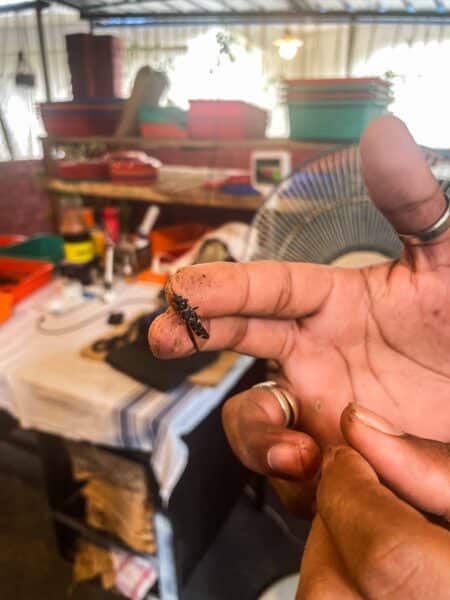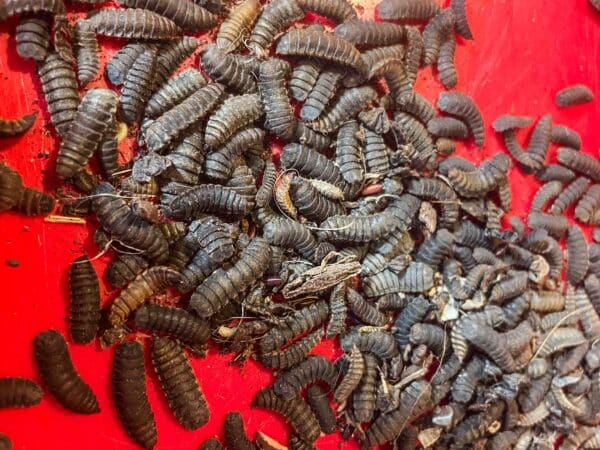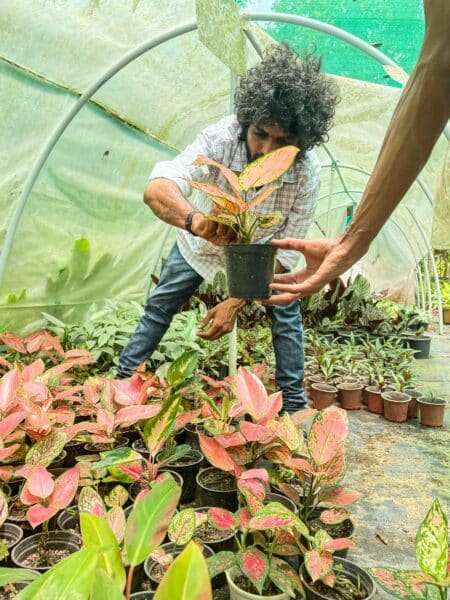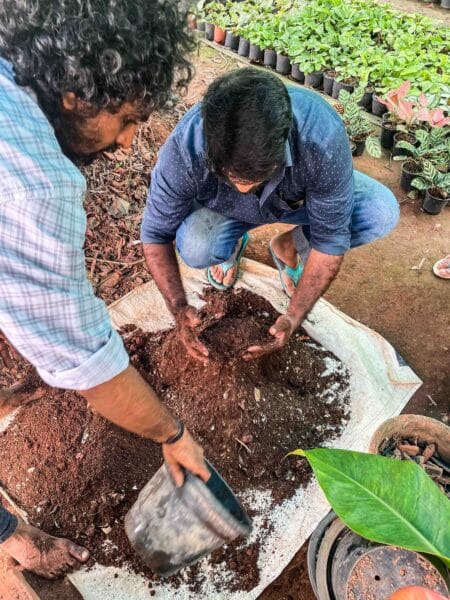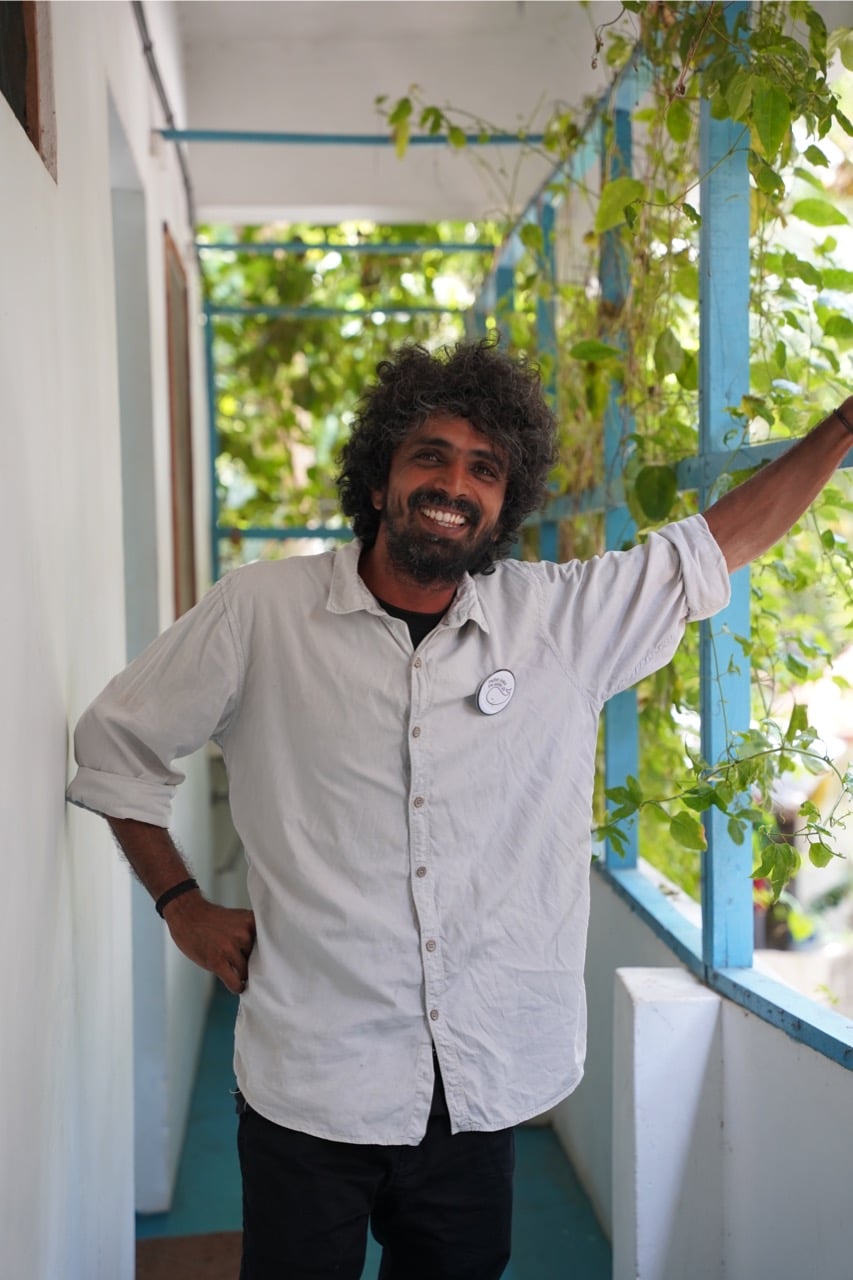Employee Spotlight: Krishna Kalidas
Meet Krishna
Meet Krishna Kalidas, a local from one of our target communities in Vizhinjam, India and one of the key visionaries behind our Waste to Wealth program. Having worked his way up to becoming our Waste to Wealth Program Manager in india, Krishna works with local government, the fishing community, businesses and festivals to create long-term positive change not only for his community, but for other communities across the region, as well as internationally through supporting our growing Solomon Islands Waste to Wealth program.
Krishna was our first local staff member in India back in 2017 and has been a key driver of our evolving work in Kerala. His innovation, passion, resilience and remarkable work ethic have made him an incredibly important addition to our Global team.
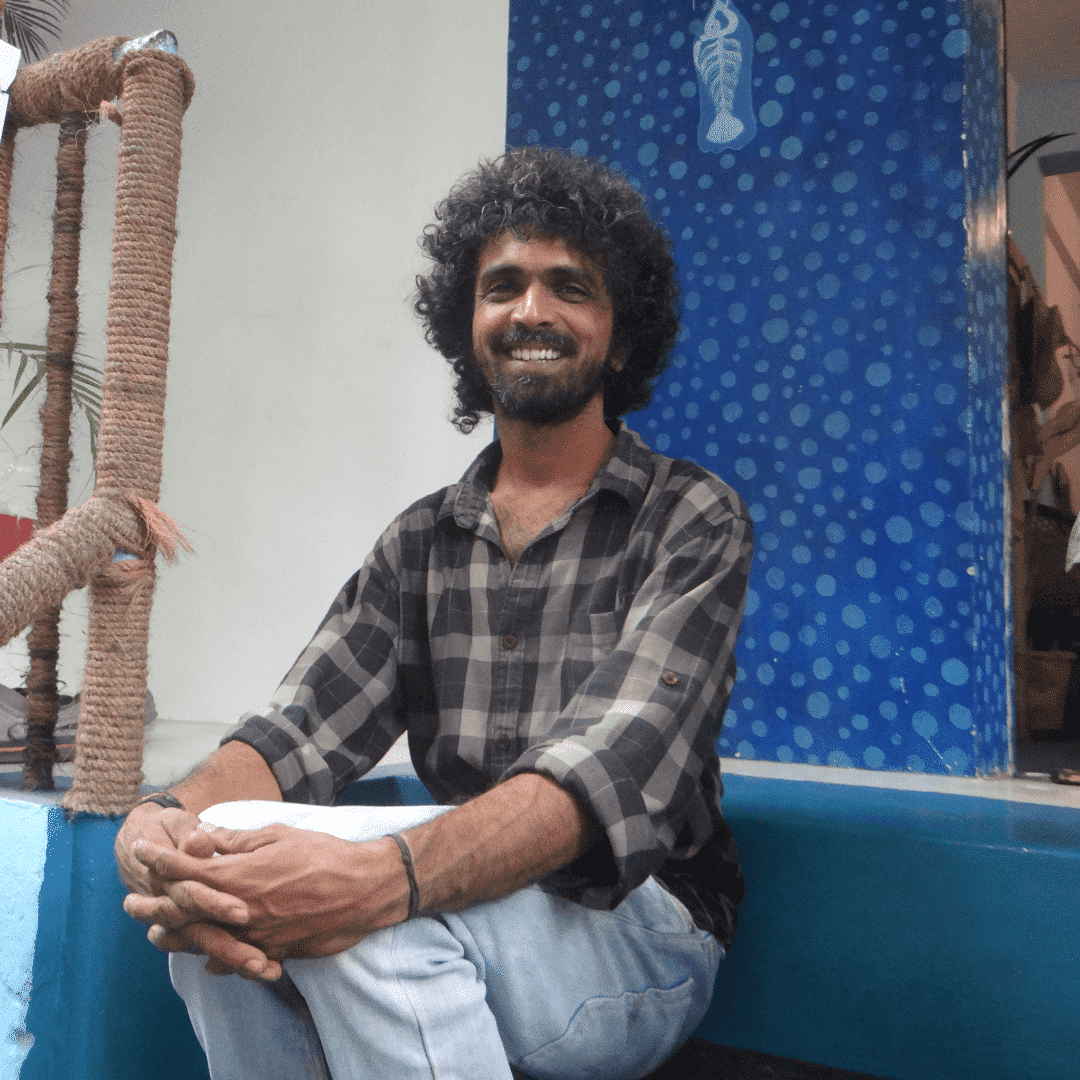
A Journey in Effective Waste Management
Although having a degree in Aeronautical Engineering, Krishna’s journey into conservation began in 2013 when he interned at the innovation experience company Green Prophet, laying the foundation for his role with PCFML India today.
During his internship, Krishna dedicated seven months to developing solutions for clean drinking water, striving to making a difference for communities across the country. Unfortunately, the company ceased its operations in India. Undeterred by this setback, Krishna leveraged his connections within the company to explore new opportunities.
Through a former colleague, Krishna became involved in a joint project with Kerala Agricultural University, Trivandrum, aimed at tackling the challenge of managing bio-waste efficiently. This project, which involved developing a machine capable of processing bio-waste within hours, captured Krishna’s imagination. He immersed himself in it, dedicating three and a half years to its realisation, which involved a deep dive into the world of organic composting and its range of benefits to agricultural practices.
Armed with newfound knowledge and a passion for sustainability, Krishna returned to his village, Nagavitanda village in Hubli district, Karnataka, in 2016. Here, he conducted surveys among local farmers, uncovering a heavy reliance on chemical fertilisers, which were seemingly having disastrous effects on crop yields and soil health.
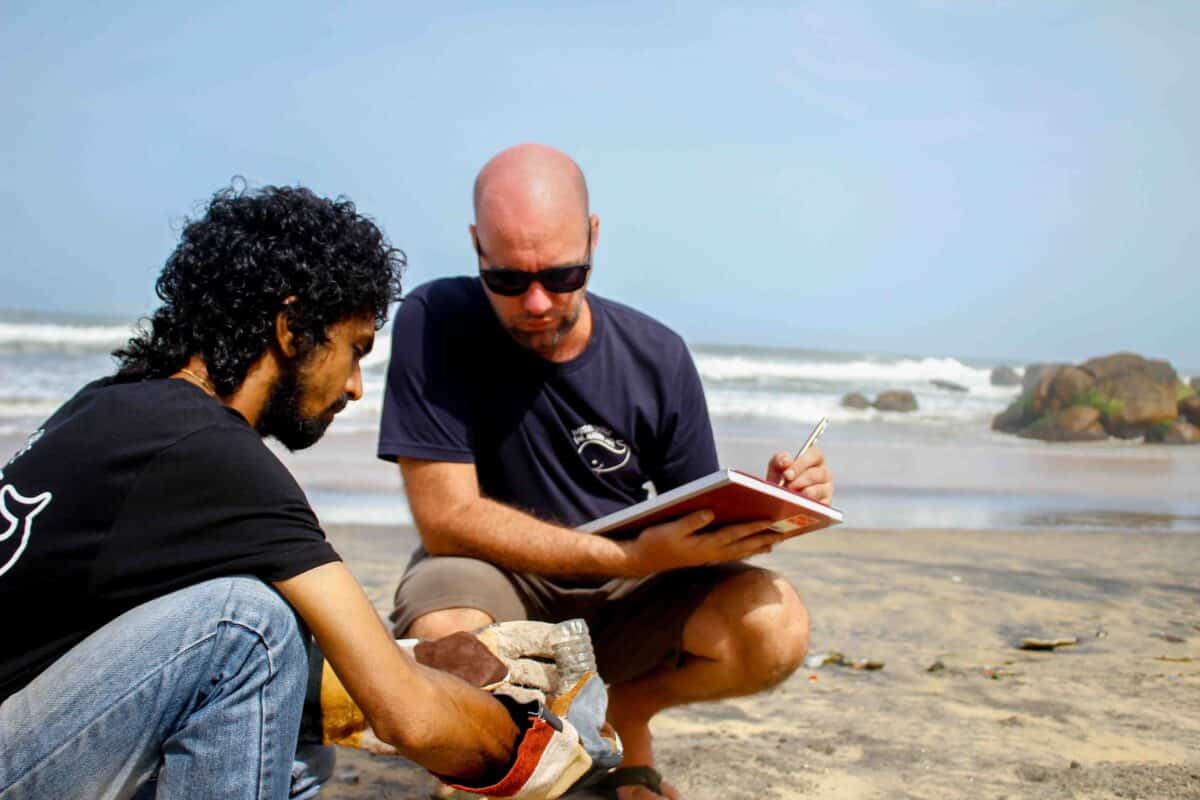
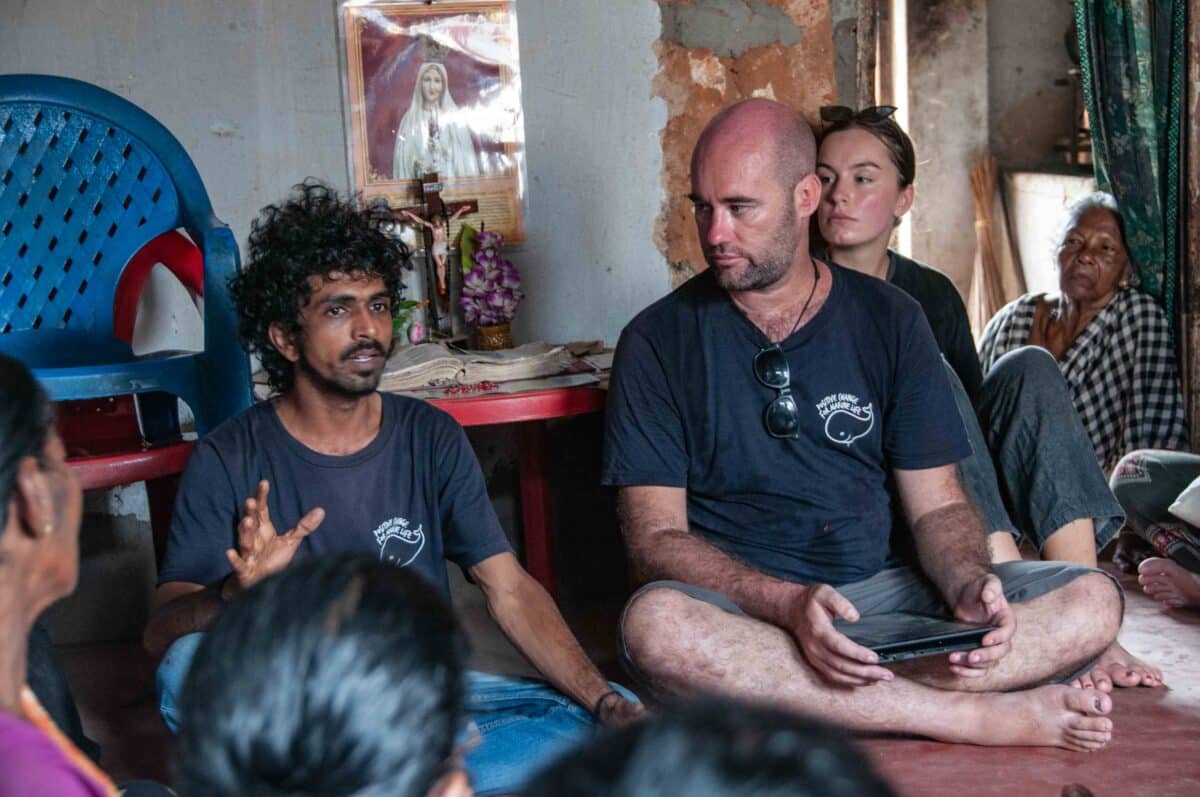
Developing a Strategy to Tackle Waste
Determined to make a difference, Krishna embarked on a mission to promote organic farming within his community. Setting up demonstrations and conducting experiments, he showcased the benefits of organic fertilisers and composting techniques. As word spread about his efforts, the community began to slowly embrace the shift towards organic practices, realising the long-term benefits for both their crop and soil health, as well as the environment.
Recognising the need for waste management solutions in coastal communities like Kovalam, Kerala, he turned his attention back to the region where he had lived for most of his life. In 2017, he applied for and was selected as our Community Engagement and Waste Management Liaison Officer, having now been with the team for an impressive seven years, and recently (2023) being promoted to Waste to Wealth Program Manager.
When he first joined us, Krishna (along with our then India Program Manager) conducted extensive surveys among over 400 families to assess their waste management practices. He discovered a desire for better waste management, but a lack of proper segregation and disposal methods, as well as a huge amount of scepticism from many broken promises within the community from NGOs, businesses, and government in the past. Collaborating with local government officials, and community leaders, Krishna proposed a waste management strategy, initiating waste segregation efforts with the support of the church and local organisations.
“From just two households in the beginning which took months to bring onboard, the Waste Collection Service now services 405 households and businesses, including 100% of the community that I grew up in!”
Krishna Kalidas – PCFML India Waste to Wealth Manager
Positive Change IS Possible
Installing segregated bins and providing education on waste management, Krishna and our small team at the time began to slowly see a change in behaviour within the community. Despite challenges such as resistance to using the bins and improper waste disposal habits, he persevered, working closely with the community to offer incentives and education on the health, livelihood, and environmental importance of proper waste segregation.
Through perseverance and collaboration, waste segregation became ingrained in community practices, with families taking ownership of their waste disposal responsibilities and people starting to come to Krishna and the team…the demand began to outweigh our capacity to service it!
Fast forward five years and the ‘Waste Collection Service’ has expanded to reach over 405 families and businesses, providing 97 previously unemployed, marginalised women sustainable work, while creating a broader model for sustainable waste management, as well as micro-enterprises through turning collected waste into new, saleable products.
As the program matured and our India team grew, Krishna turned his attention to composting as a sustainable solution for organic waste, which was having a devastating impact on human health and estuaries (nutrification). Experimenting with different composting methods, including vermicomposting, he discovered efficient ways to convert organic waste into a valuable, chemical-free product.
Developing a Community-Wide Come Global Organic Composting System During the Pandemic
In 2020, amidst the challenges posed by the global pandemic, Krishna faced a unique predicament. Locked down in his home, he found himself grappling with how to manage the organic waste generated within his household when he noticed a foul smell emanating from the compost bin in his garden, which (pre-COVID) was managed by a local gardener. Upon investigation, he unearthed a startling revelation – a colony of black soldier fly larvae thriving within the bin!
Seeking guidance, Krishna shared his findings with Blake, the Manager of our PCFML India team at the time, hoping for insight into the nature of the larvae and their role in the composting process in order to assist both PCFML’s projects and his own home composting challenge. With Blake’s assistance, Krishna identified the smell as a sign of an underlying issue with the composting process. He embarked on a journey of experimentation and innovation to revamp his home composting system and his approach.
Designing a new compost bin measuring 1.5 meters, Krishna hypothesised that inadequate aeration might be the root cause of the problem. Drilling holes in the bottom of the bin in an attempt to improve airflow, Krishna’s efforts proved futile as the issue persisted. Determined to find a solution, Krishna sought refuge in an empty house obtained through a friend, where he could freely experiment with composting techniques, supported by the PCFML team to explore how his findings could be scaled within our target communities.
Armed with a newfound understanding of the black soldier fly larvae and their lifecycle, Krishna meticulously studied their habits and environmental requirements. Leveraging this knowledge, he designed a composting system that effectively managed organic waste while mitigating odour and environmental hazards.
This unique approach has since evolved to include:
- A fully-fledged community composting program, collecting almost 7 tonnes of organic home and business compost to date and converting up to 30kg per day into organic fertiliser, with a 30% profit margin.
- The sale of the compost to local farms and nurseries throughout Trivandrum city.
- An exploration of a business model that grows the project into a fully-fledged, community-led model, run by our marginalised communities to contribute to human, environmental and economic health.
- An ongoing partnership with Kerala Agricultural University, which has seen Krishna and the team present papers and presentations at conferences.
- A funded expansion to the Solomon Islands, where Krishna will be traveling later this year for a month to set-up the project and teach the community there.
Waste Collection Service: A Commitment to Human and Ocean Health
With the lifting of lockdown restrictions, Krishna resumed our Waste Collection Service within the community, gradually expanding outreach efforts to 50 families. However, with a growing number of household now engaging and, faced with the daunting task of segregating waste alone, Krishna proposed hiring labour from within the community to support the process. Despite initial reluctance from some community members, especially in the face of gender stereotypes, Krishna’s perseverance paid off as a few previously unemployed women agreed to join the cause, significantly improving waste segregation efficiency and enabling further successful expansion of the project.
This allowed him more time to engage with new hotel owners and vendors, educating them on the different types of plastic waste they were producing and exploring ways to reduce their reliance on (and subsequent, severe pollution related to) single-use plastic products. However, convincing them to switch proved challenging due to the higher costs involved. Despite highlighting the benefits for tourists and the environment, they were hesitant to transition from plastic to paper products. Blake, Krishna and the team thus began building a case for a region-wide plastic transition project, collecting the plastic waste items that they were giving out from the beaches and the ocean directly surrounding these businesses. This marked the beginning of our Leave No Trace project.
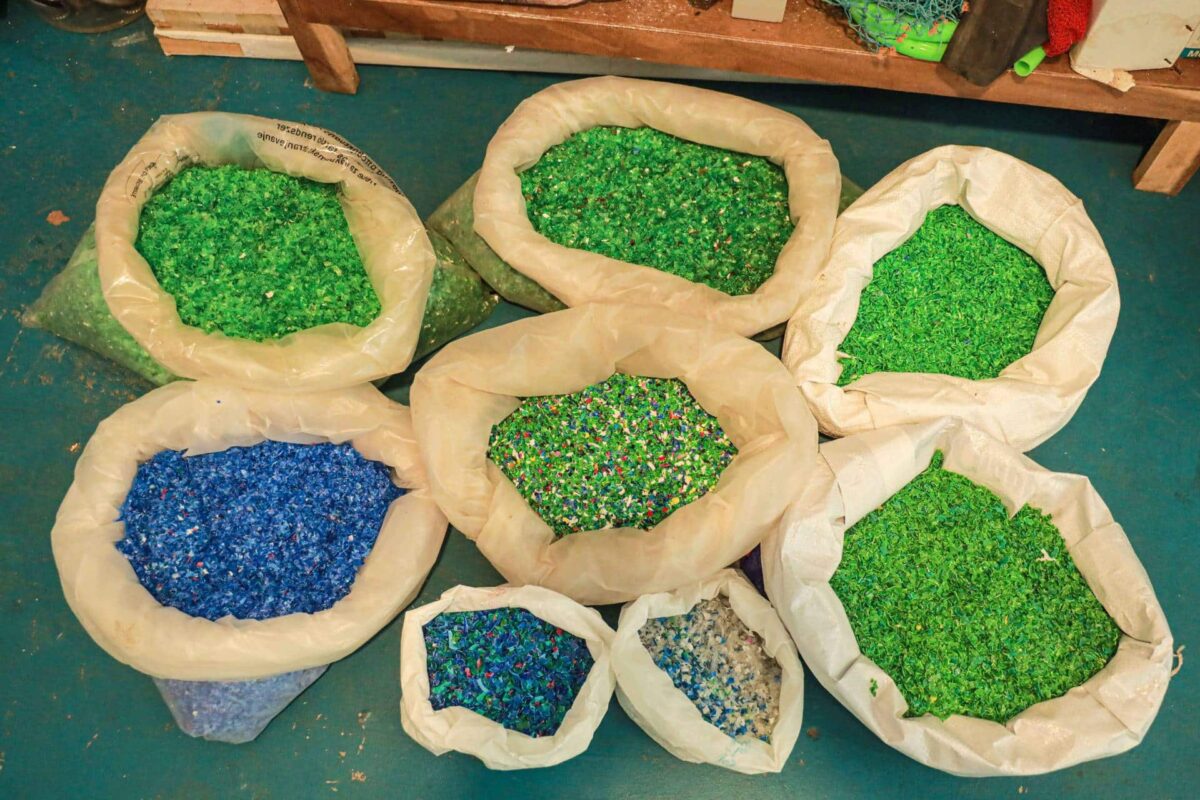
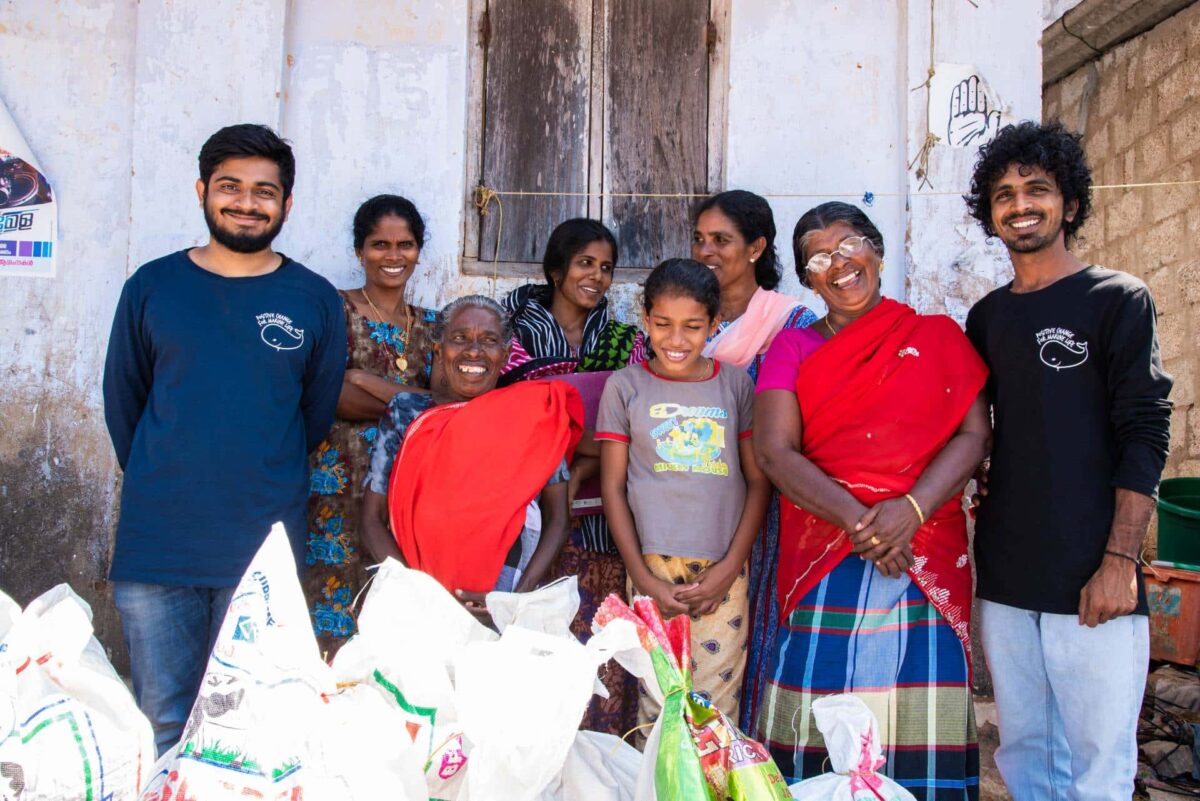
Leave No Trace Program – Source Reduction for a Cleaner Ocean
As our beach litter audits began to uncover mammoth amounts of local business single-use plastic items accumulating on the beach and ending up in the ocean every day, we began to build a case for a transition program that could be discussed with local tourists, businesses and the government’s own Tourism Department. At the same time, Krishna and the team began surveying these tourists (both Indian and foreign alike), while also exploring alternative, truly biodegradable products within India, as well as with the PCFML Global team. At the same time, the PCFML India team were lobbying for a local plastics ban within Trivandrum, which eventually contributed to a statewide single-use plastics ban!
Leave No Trace was born and, in unison with the ban, Krishna began to roll out the project with the local team, interns and volunteers. Undeterred by initial resistance from businesses, Krishna took a different approach. He began selecting vendors who showed genuine interest in adopting sustainable practices, like Josh, a local, popular business owner who was eager to learn more about the project. Slowly, he introduced eco-friendly products to the vendors, using our customer survey data to reflect that an overwhelming 95% of customers were happy to pay 5-10 rupees more to use eco-friendly, non-plastic products!
Additionally, Krishna and the team offered an initial three-month subsidy to cover the full cost of the new products, as well as to design colourful, professional signage promoting the businesses and the transition project to further sweeten a shift away from harmful plastic products.
The success of the project hinged not only on offering subsidies but also on building trust with the vendors who often valued reliability and quality over monetary incentives. Thus, when Krishna introduced paper straws, though initially resisted due to concerns about durability, they eventually adopted them after he sourced higher-quality alternatives. Fast forward to today and Krishna is supported with the Leave No Trace project by a team of local PCFML Coordinators who help to manage the 70+ businesses now engaged, who combined are stopping over 2.7 million single-use plastic and polystyrene items from making their way to the streets beaches and ocean every year!
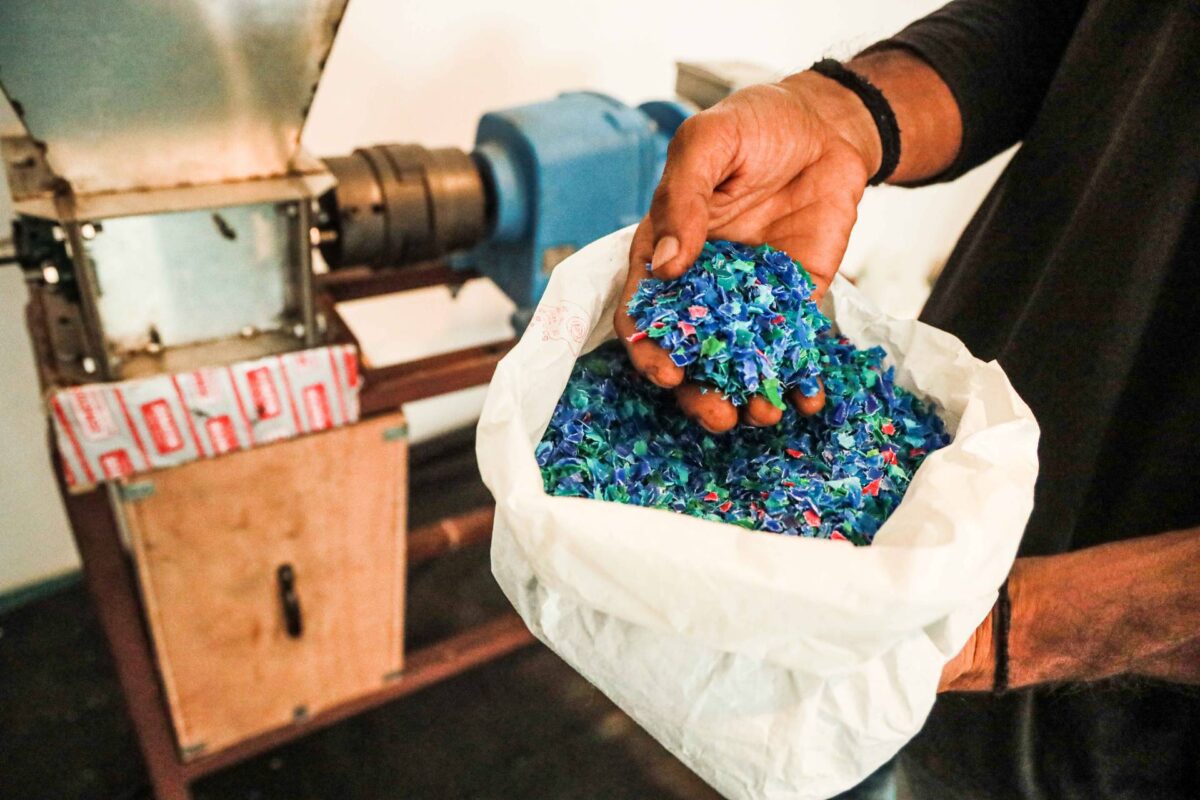
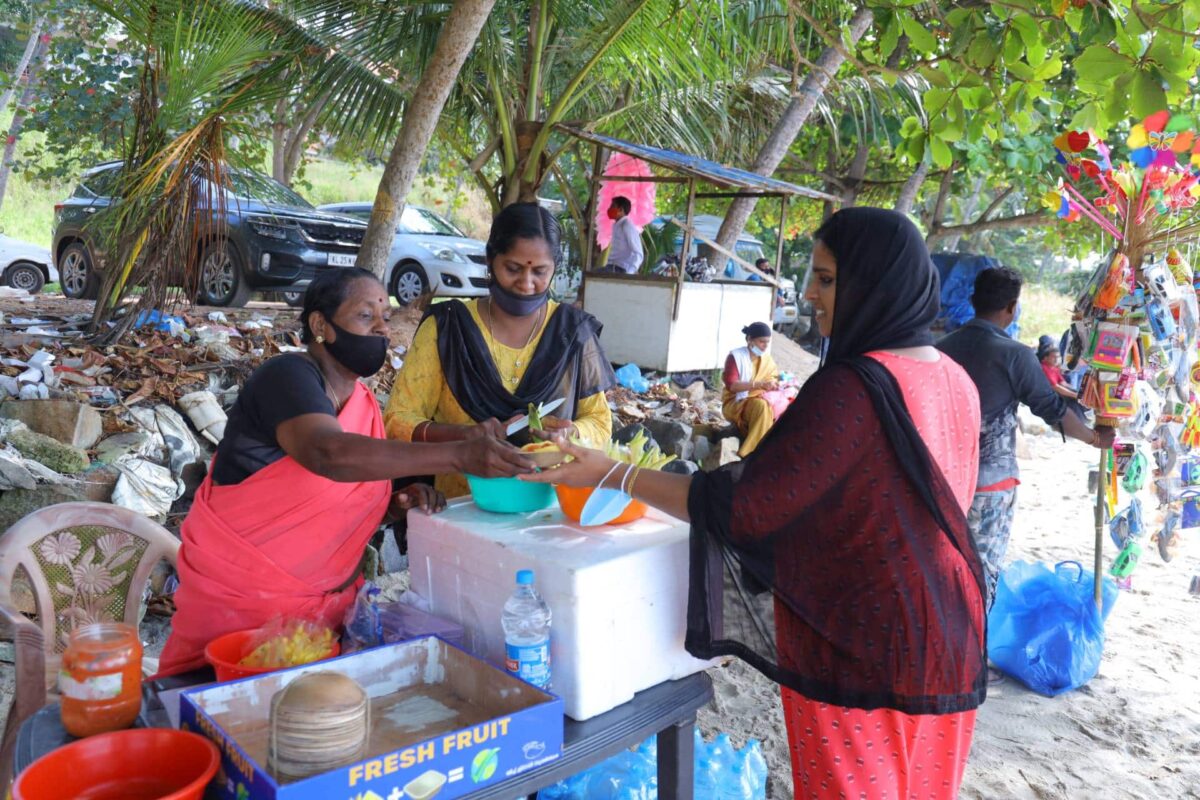
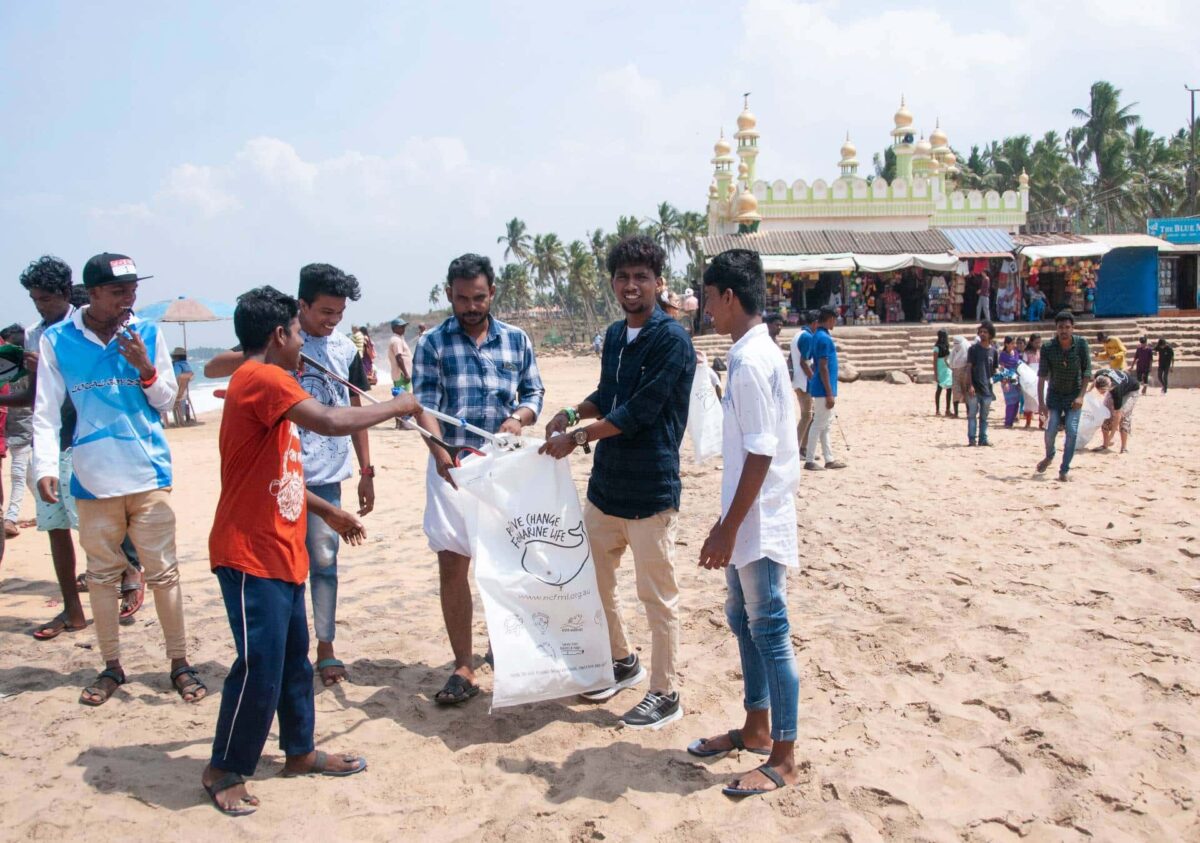
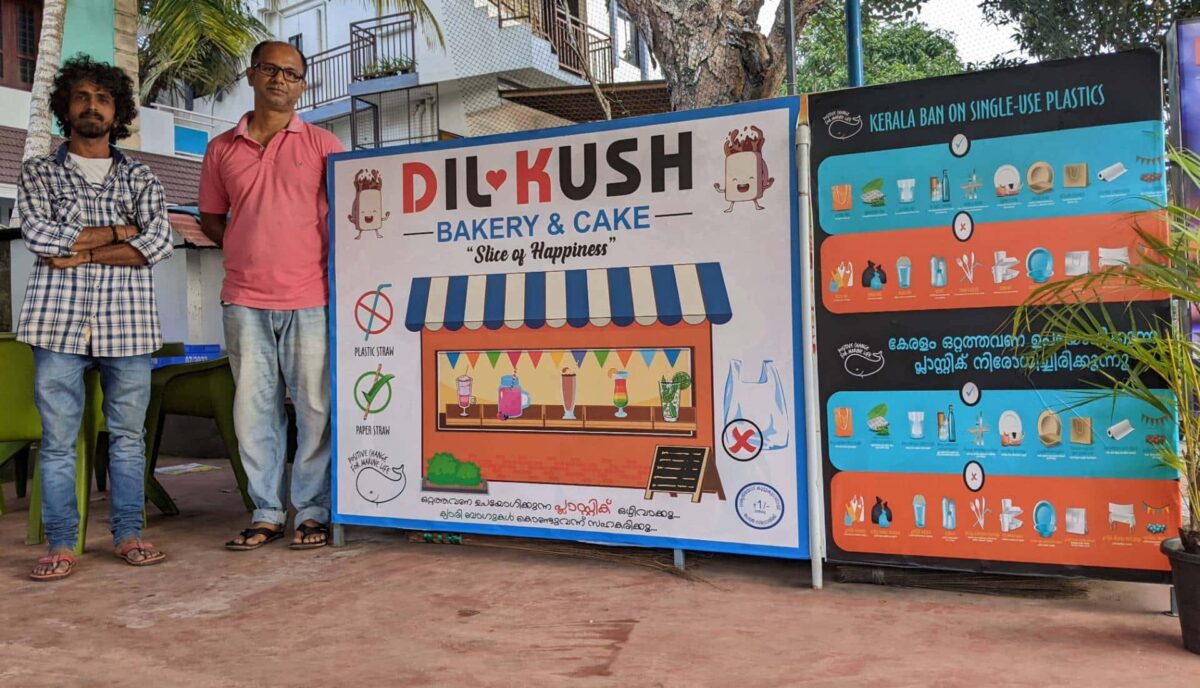
The Impact
The multi-faceted Waste to Wealth program encompassed strategic solid waste management, organic waste to compost projects, and source-reduction initiatives. Underpinned by training, fair employment for the most marginalised, as well as community education and empowerment, it’s a truly unique conservation-focused approach, with enormous potential to be replicated beyond India. In fact, the program has now grown to the Solomon Islands, with a similar model also being developed in Australia.
The importance of market-based solutions to waste management cannot be underestimated, not just through recycling, upcycling and making new, saleable products from solid waste, but also through the BSFL organic composting program, with enormous possibilities to scale, developing community-led micro-enterprises.
Presently, the ‘Waste Collection Service’ has made significant strides, working in across over 405 households and businesses within our target region. This includes door-to-door waste collection from households and shops, providing jobs for around 105 marginalised women.
The ‘Leave No Trace’ program has reached over 70 businesses, distributing alternative products to single-use plastics, organising plastic-free events, providing reusable products to reduce the use of single-use plastic carry bags, and encouraging the use of steel plates, cups, and bottles in various community events, festivals, and functions. LNT has resulted in over 2.5 million single-use plastic items being eliminated from supply chains, and subsequently the ocean, every year!
Furthermore, the composting prototype has managed to handle 660kg of organic waste in a month, producing organic fertiliser packed in 100%, plastic-free jute and sold to farms and at nurseries throughout the Trivandrum region. The first community hub was also recently built in the community to train community women in the entire composting process, with ongoing efforts led by intern Kavitha to develop modules for organic compost training with an even greater reach.
As Krishna and the entire team continue their environmental endeavour, their impact resonates not only within their community but also serves as a beacon of inspiration for sustainable practices and environmental stewardship within one of the world’s most biodiverse marine ecosystems, yet facing incredible marginalisation and hardship, like many other small-scale fisheries (SSF) communities globally.
What’s Next for Krishna on his Waste to Wealth journey?
In 2023, Krishna traveled for the first time outside of India, presenting alongside our CEO, India Team Manager, as well as the Korean and Japanese Ministries of Environment and SPREP at the Asia Pacific Adaptation Network (APAN) Climate Change Conference – APAN8.
This experience further reflected Krishna’s incredible growth, from the shy young man we met in 2017 who was very nervous speaking in public, to a confident, incredibly engaging professional, who inspired professionals working towards environmental and climate solutions from around the world. Further, Krishna was also selected as a participant to the highly competetive Kinship Fellows Regional Summit in Bangalore in 2020.
Next for Krishna, he is off to the Solomon Islands to teach our team and community in the Western Province on how to improve their Waste to Wealth program (based on the model he co-designed and has led in India)! A bright future ahead for this star of our Waste to Wealth programs and an inspiring story of how positive change is possible, despite the hurdles that may present themselves.
